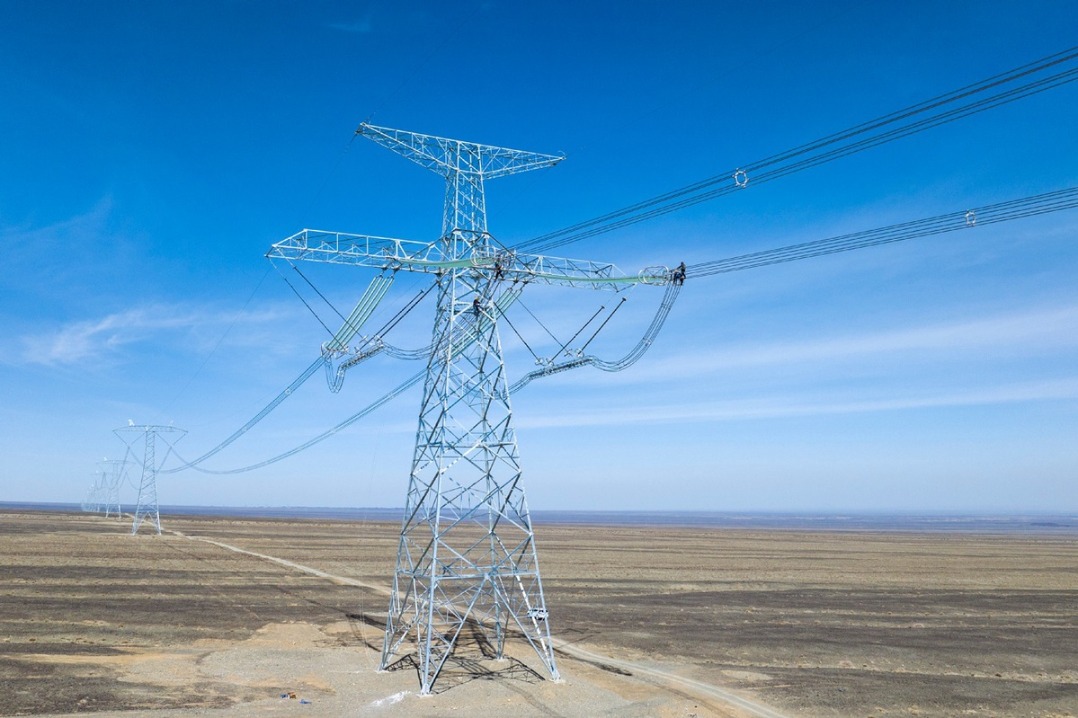My journey to a deeper understanding


In my experience, infrastructure is the cornerstone of understanding and communication.
My father spent seven years planting rubber trees from the age of 17 to 24 in a small village in Mengla county, Xishuangbanna Dia autonomous prefecture, in the southwestern province of Yunnan. His residence was about 5 kilometers from the border with Laos, but at the time, the only thing he knew about Laos was that it was a different country.
"Back then, transportation (in Yunnan) was inconvenient. Most of the time, we relied on walking to go to different places. There were no proper roads. We trekked along muddy, mountain roads. Information was limited and even if I met a Laotian, I would not know," he said, recalling how he once got lost after work and was scared that he might head in the wrong direction and end up in Laos.
Recently, I spent about a week in Laos, including travel time, and spoke with dozens of local people. I told my father that I had learned more about Laos in less than seven days than he did in seven years.
The convenient and efficient transportation system was the thing that boosted my knowledge of Laos.
On April 13, I boarded a train that departed Kunming, Yunnan's capital, passed through Pu'er, Xishuangbanna and Mohan in China, before running onto the Laotian section, stopping at Boten, Luang Prabang and Vang Vieng, finally arriving at Vientiane, the capital.
It was the first cross-border passenger service of the day on the China-Laos Railway. The journey took 10 1/2 hours, including inspections at customs stations.
The 1,035-kilometer China-Laos Railway opened on Dec 3, 2021, but the international passenger service did not open until April 13 because of the COVID-19 pandemic.
When I left Kunming in the morning, I was wearing a shirt and a hoodie. At noon, when I arrived at Boten on the border, I was perspiring heavily. Later, when I hopped off the train in Vientiane, a cold beer was all I wanted.
As I was on a media tour to experience the cross-border passenger service, I asked local people for their opinions about the train.
I was surprised that everybody I spoke with knew about it. It was a perfect opening line to start a conversation with a stranger on the street, even without knowing the language.
One day, four reporters, myself included, had dinner at a small cafe in Vientiane. None of us spoke Laotian, and the restaurant staff members spoke very little English or Chinese. Our conversation was mainly conducted in sign language and by pointing at pictures on the menu. Our efforts to carry on a deeper conversation failed.
One staff member — I guessed she was the owner or the manager from her clothes — saw our tags from the organizer, pointed at the train on the tags and said something in an excited and happy voice. Then she turned to the other staff members and pointed at us and the train on the tags. They all gave us a cheer.
I remained in the dark as to why they cheered, but the one thing I am sure of is that they thought we were involved with the train and they liked people who had that sort of relationship with it.
Fond feelings
In addition to using sign language to indicate a fondness for the train, many people spoke about their feelings. Amhka was one of them. The 63-year-old operates a boat on the Mekong River in Luang Prabang. He has three children, one of whom works in Vientiane. She can be home in two hours by train, he said, raising two figures to ensure that I understood his English. Amhka had not had a chance to try the train as he works nonstop to earn a living. "I hope to try someday," he said.
Before the China-Laos Railway opened, Laos had a 3.5-km railway, which mainly served as a freight connection with Thailand.
For most Laotians, riding a train is a brand-new experience. "When the domestic passenger service had just opened, we crew members spent a lot of time explaining how to ride the train, such as going through security checks, checking tickets and explaining prohibited behaviors," said Vongthong Somphavath, a 26-year-old chief conductor of the bullet train that runs on the line.
"I understood that, as it was a new experience for many passengers. Now, as the train has been running for more than a year, our passengers are getting used to it. Fewer basic questions are asked." She noted that when the service started, there were some doubts and concerns, such as the high ticket prices.
"Despite those concerns, our tickets sold out quickly," she said.
The former tour guide was not sure about her future career plans since the job at the railway company is new experience for her and her community. She has no example to follow, she said, adding that in five years or so, she wants to hold a management position.
Although modern technology, especially the internet, offers people far and wide opportunities to know each other, it cannot replace face-to-face communications. Without meeting the restaurant staff members, the man on the boat or the train conductor, it would have been impossible for me to learn about their feelings, hopes or life plans.
Thanks to the China-Laos Railway, I am way more fortunate than my father because I now feel that I know a different country, its culture and its people pretty well.
- China forecasts average of 2m border crossings over upcoming holiday
- Xinjiang transforms deserts into renewable energy goldmine
- World's highest bridges in China become a magnet for extreme sports enthusiasts
- UNESCO Confucius Prize for Literacy honors innovative education projects
- UNESCO adds 26 new biosphere reserves, including 2 in China
- China launches low Earth orbit satellite group




































